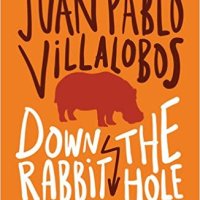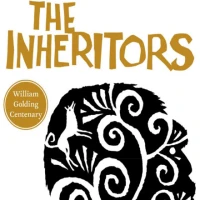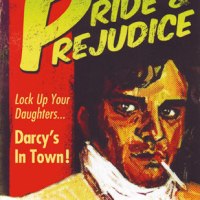Originally posted 4 July 2008.
A couple of days ago I finished the first novel of Alan Sillitoe, Saturday Night and Sunday Morning. Originally published in in 1958 and later made famous by the 1960 film of the same name starring Albert Finney (and if you haven’t seen the film, you should, it’s a classic of 1960s British cinema, a period when we made stuff other than period dramas, romcoms and gangster movies).
The novel explores the life of Arthur Seaton, a lathe operator in his early 20s who lives and works in Nottingham. It’s a conscious attempt to portray working class life in Nottingham as it was lived, to give a literary voice to people usually overlooked by literature. To tell a story otherwise all too often ignored. It succeeds in my view in all these goals.
Arthur works the week manning a lathe in a factory, he makes £14 a week doing piecework and this is good money – good enough he has to keep quiet about how much he makes so as to avoid his piece rate being reduced (particularly productive workers have their wages per item reduced so as to keep their overall salary in line with less productive workers). He enjoys his job, he’s good at it and it’s familiarity makes it automatic so allowing him to spend the whole day thinking and daydreaming. On Friday and Saturday nights he goes down the pub, spends his wages and has a good time. Sundays he does a bit of fishing and takes it easy, in preparation for Monday coming round and work starting again.
Arthur is a hedonist, in the very first chapter we learn he is having an affair (and plainly not his first) with a married woman, he outdrinks a braggart, vomits over a couple who’re sitting in the pub as he tries to leave it and generally he has what he considers to be a great evening. The novel is unapologetic, Arthur is generally happy, he likes his life, he likes his job, he likes sleeping with other men’s wives and he likes getting drunk.
The novel is in some senses plotless, not a lot actually happens. Arthur sleeps with some married women, gets beaten up by friends of one of their husbands (something he sees coming long in advance and makes no real attempt to avoid), has run ins with his neighbours, does his 15 days of national service, goes fishing, spends time with family, works on the lathe and so on. The novel captures a bit over a year of his life, it covers what happens in his life in that period and his move from a life of carefree hedonism to a only marginally less carefree life with a settled girlfriend. There are no great moral revelations, no “I was never the same again after that Summer”. No repentances, the novel is in many ways close to reportage.
Arthur himself is a fascinating (if not pleasant) character, chunks of the novel are streams of his consciousness, in which we see he is intelligent and charismatic but without any real drive to change his world (perhaps unsurprisingly, given he quite likes it). He’s a revolutionary, but waiting for someone else to start the revolution, he dreams of machine gunning bosses and the officer classes but has no particular hostility to them in the meantime other than a generalised distrust. He sees the world as out to get him, society as set up to take advantage, and himself as a perpetual rebel who refuses to be done down by it. He looks down on the men he cuckolds, but sees their situation as a failing on their part rather than any fault on his. Overall, he’s a wholly credible character, a portrait drawn from life, it’s a superb portrait of a man and the context in which he lives.
Arthur’s family and associates are also well drawn, persuasive, I recognised much of the depiction of working class family life from my own family, details varied but the essentials both of care for each other and of generosity and the style of the dialogue rang true. That said, it’s not romanticised, other than Arthur his family are largely poorly educated and with little by way of interest in the world, they are deeply insular people and Arthur is the only one apparently aware of a larger world beyond Nottingham. There are some marvellous comic sequences, including one where Arthur convinces a man that nuclear war is to be feared by pointing out that nuclear bombs contaminate the soil and so would destroy the man’s allotment based vegetable business. Arthur frequently thinks about nuclear war, about the possibility of imminent annihilation, seemingly seeing it as one more reason to live now while you can and hang the consequences.
Equally, the women in the novel are seen largely from the perspective of men, but Sillitoe is skilled enough to give the impression that they have a real inner life, just one that Arthur seems frequently unaware of. Again, they persuade as depictions of real women, albeit real women as seen through the eyes of the men they live, work and sleep with.
The novel also speaks about race, the people in Arthur’s world are routinely racist in language, but when an African soldier called Sam comes to stay with the family (he’s a friend of one of the family currently in uniform) everyone makes every effort to make him feel at home, feel welcome, to treat him as a guest. Casually racist remarks are made in his presence, comments about assegais and tom-tom drums, but when one person makes such a remark another pulls them up on it (as being rude, not as being racist per se) and great effort is taken to ensure Sam enjoys his stay – which he does. It’s a subtle depiction of the intersection of class and race, the Seaton’s are in some senses plainly prejudiced, they have stereotypical views of Africans and no great interest in revising them, but in others they are not at all – Sam’s status as a guest trumps all other attributes he may have and there is no sense of any dislike or fear of him. He is other, but a guest and so a welcome other and his differences are more a matter of curiosity and humour than they are of fear or suspicion. It struck me as a deeply credible depiction again, Sam being black is a point of interest for the Seatons and is something beyond their experience and worldview, but ultimately to them he remains a person who they assume to be not too different to themselves and they accept him as one of their own. They see no tension between having racist views of the world, yet treating an individual of another race well, and at the risk of getting too autobiographical here that’s again something I recognise from my own family and childhood.
It’s this in part which persuades that the book does have something to say beyond simply an account of a life. The book comments on relationships of class, of race, and of gender. It is in some senses deeply political yet without being polemical. It has much to say on the role and treatment of women and on the relationship between workers and the worked-for, but it says it all lightly and without feeling the need to lecture. Because it is truthful in the experiences it depicts, it can afford to let the truth speak directly to the reader, and it’s that truth which I think helped propel it to the status of classic which it now enjoys.
The prose in the book is simple and clear, but without being merely workmanlike. There’s the occasional jarring phrase, but mostly the prose delivers the lives of Arthur and those he knows cleanly and without stylistic intrusions. Arthur’s internal dialogue feels real, and persuades as a convincing inner voice. Much is written in dialect, words being spelt as said, so there are references to wok (instead of work), to boogers (buggers), making tea is called making a mash, there’s nothing though that isn’t easy to work out from context and it isn’t taken to anything like the level of a Welsh or a Kelman. There’s an exuberance at times, capturing Arthur’s irrepressible nature (actually, he has quite a lot in common with Monkey come to think of it) and this helps avoid the novel being hard work. The novel reads quickly (well, it reads quickly when you’re not doped up on antibiotics and painkillers anyway), it has something interesting to say and it says it well. It was well worth the time I put into it.
On a final note from me, the novel is not (despite its being set in a very particular time and place) at all dated. I suspect if you were to go to Nottingham on a Saturday night now you’d see the grandsons of Arthur Seaton out there still, getting drunk and picking up girls and enjoying the weekend because Monday comes soon enough. Feeling like the world is not on their side, and not caring because they’re young and have money in their pockets and beer in their stomachs. Novels are the nearest thing in the real world that we have to telepathy, a way to experience another person’s life and point of view. Next time they show on the news a group of drunken lads out smashing up a town centre on a Saturday night and you wonder why they do it, you can pick up this novel and it will give you the answer. It might not be an answer you’d like, Arthur Seaton is in many ways not a likeable man, but it does give an answer which rings true.
I’ll give the last word for now to Arthur, with a few small excerpts of his thoughts:
“I’ll never let anybody grind me down because I’m worth as much as any other man in the world, though when it comes to the lousy vote they give me I often feel like telling ’em where to shove it, for all the good using it’ll do me.”
“Ay by God, it’s a hard life if you don’t weaken, if you don’t stop that bastard government from grinding your face in the muck, though there ain’t much you can do about it unless you start making dynamite to blow their four-eyed clock to bits.”
“I’m a bloody billy-goat trying to screw the world, and no wonder I am, because it’s trying to do the same to me.”














Interesting that there seem to be some similarities between this novel and the Post Office–both explorations of a working class male, both plotless.
I had the impression that this novel was now dated (don’t know where I got that idea from), but you very specifically say otherwise.
I may have given the wrong impression some time, it’s definitely not dated, it’s of its period certainly but it still has resonance.
Looking back though, I should have put at least one decent sized quote in, so people could take a view on the writing for themselves.
Pingback: May 2022 roundup | Pechorin's Journal